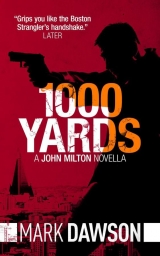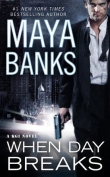
Текст книги "1000 Yards"
Автор книги: Mark Dawson
Жанры:
Боевики
,сообщить о нарушении
Текущая страница: 5 (всего у книги 5 страниц)
17
Kim rushed between the opening doors of the elevator car and, shouldering aside the attendants who were guarding the door, tumbled into the offices of the Reconnaissance General Bureau. Yun had telephoned ahead with news of the threat but, as he had breathlessly relayed to Kim as the Major sped across the city, the security officers had dismissed his fears with supercilious disdain. There was, they said, nothing that a single man could do to threaten the leadership of the People’s Army. To suggest otherwise was ridiculous. The building’s security had never been breached and was considered to be impregnable but, to humour him, it would be checked. In the absence of better evidence of the threat – the narcotic ramblings of a man whose mind had been broken were not sufficient – the meeting could not possibly be cancelled. Kim knew why: no-one would want to admit to the generals that there was the possibility that they might be fallible.
He ran to the conference room where the meeting was to be held, angrily presented his credentials for inspection and went inside. Proceedings had already commenced. The opening address was being given by Lieutenant General Kim Yong-chol, one of the Vice Chairmen. He was praising the computer programmers who had executed such an audacious attack on the Imperialists and their southern lackeys. They were, he opined, in the vanguard of a new kind of war, the kind of war that would send the enemies of the Fatherland back to the dark ages. The usual nonsense, but this audience was primed for it. The room was large and Kim had entered at the rear, the disturbance kept to a minimum. He took it all in quickly: there was no sign of the Englishman, not that he expected to find any. It was a bomb, surely. He had smuggled a bomb into the country, hidden it here and rigged it to explode. He was going to take out as many of the generals as he could.
“Excuse me!” he shouted. “Comrades! My name is Kim Shin-Jo. I am a Major in the Ministry of State Security. I must ask you—”
His eye caught something out of the window and the words caught in his throat: he didn’t know what it was. A flash of light? The quickest glint of something? A reflection? He glanced across the cityscape to the half-finished Ryugyong Hotel, the only building in the city that was taller than this one. It was half a mile away. Time slowed down. He saw it again, definitely coming from the hotel, that huge tapered arrow pointing straight up into the lowering sky.
People had turned to look at him.
He saw another tiny bloom of light, a different kind of flash against the dark concrete of the hotel’s bare skeleton, and then heard a strange sound, a pop that was similar and yet dissimilar to the sound that the seal on a jar of coffee makes as it is pierced. His warning went unsaid as the general toppled backwards, breaking his fall on the edge of the lectern for a moment, but then sliding to the right as his body lost purchase and completed its journey with a graceless thud to the stage. The disbelief came first – the whole room experienced it – and then the thought that the general must have fainted before Kim realised, with shocking and awful clarity, that the odd noise he had heard before was the sound of something shearing through glass, a noise announcing that a spiderweb of fracture, delicate strands radiating from a central point, had suddenly been flung across the large window a dozen feet from the general at his lectern, and that at its centre a small, round, hole had been drilled in the glass, which, though badly damaged, held. It took a second more for the pulverised remains of the man’s head to start leaking blood, the dark bloom spreading from his body, a crimson corona, at which point the human fear of blood – primal, automatic – asserted itself. Screams and panic and rushing for the exits and diving for cover but, by that time, two more bullets were already on their way downrange.
The weakened window bulged once, twice, and collapsed in a million pieces of broken glass that shone like diamonds.
The Englishman was disastrously, cataclysmically accurate. He was aiming for headshots and hit both perfectly, blowing each one all over the insides of the conference room. He hit the Director of the RGB an inch above the right temple, the bullet pulverising his skull into fragments that sprayed across the room (those nearby would be tweezering fragments from their flesh for days afterwards). The man slumped forward until his chest fell between his knees and, thereby unbalanced, his body rolled forward off the chair and to the ground. His comrade, yet another general, swivelled his head at the sudden commotion, experienced a moment’s worth of complete horror to see his colleague without a head, before the third bullet hit him between the eyes, dead centre above the line of his nose. The fifty-calibre projectile ploughed straight through skull bone and brain matter, exiting with horrendous gushers of blood, brain, and bone fragments. Both bullets slammed into the thin partition walls, passed through the next two offices and, eventually, their momentum sufficiently impeded, exploded in a shower of zirconium sparks that immediately started hungry fires.
Kim found that he was on the floor. People were rushing around him, jostling him, treading on his hands. He clambered upright. The Chief of the General Staff collided with him.
The man flung him side. “Get out of the way, you fool!”
The fourth bullet struck the general on the right side of his face, dug its way through the flesh and bone and teeth enamel, ploughing through the rear of the throat and into the bone of his shoulder, atomizing it into thin pink mist on the exit. His knees locked, even against the sudden and awful collapse of his weight, and so instead of tumbling he pivoted and was almost lowered downwards, dropping into a chair as if it was his favourite armchair at the end of a difficult day.
The bullets flew with delayed supersonic bangs that rang out only as the audience was beginning to realise what was happening to them.
The fifth shot was already on its way by then.
It struck a general who had been sitting in the first row, also in the head.
The result was identical.
The conference room erupted in panic – pure pandemonium – but there was nowhere for any of them to go. Every seat had been filled and as the attendees tried to make for the passages at the end of the rows they tripped over the chairs and each other. A scrum developed at the door. Kim dropped to the ground and wrapped his arms over his head. There was nothing he could do until the Englishman grew tired of his sport, shooting fish in a barrel.
18
Someone had overturned the table with the urns of coffee and tea. Milton watched through the scope as his fifth and final target sheltered behind it. He fired. An inch of plywood was like a skein of tissue to a fifty-calibre bullet travelling at 27,000 feet per second. Another huge bloom of blood splashed out onto the beige-coloured wall.
Milton stopped shooting.
His ears were ringing.
“Is it done?” Su-Yung said.
The next sound he heard, unmistakeably, even at this distance, was the muffled sound of screaming.
“It’s done.”
The unfinished room was full of the smell of burnt powder. Milton pushed himself backward on his toes and his forearms, moving away from the window. He swept the six spent shell cases into a pile. He scooped them into his hands and dropped them into his pocket. They were hot to the touch.
“How many?”
“Five,” Milton said.
“But you only shot six times. You hit five?”
Milton nodded.
“Extraordinary.”
Milton indicated the rifle. “I just point and shoot,” he said.
“That is a painful lesson for them to learn. And in their own building.”
Milton said nothing.
“We must go,” Su-Yung said. “They will close down the area. We must not be here when that happens. Your cover will not stand up to scrutiny.”
Milton came to his knees and stood up. He closed the plastic sheeting again, feeding the ties through the corresponding eyelets and tightening them. There was no sign that he had ever even been here. He wrapped the rifle in the blanket again and they made their way back down the stairwell. The garage was still deserted, gloomy and silent, although the sound of sirens was audible from outside. Su-Yung went to the van but, when she turned back to Milton, she looked concerned.
“What is it?”
“Kun was supposed to meet us here. He was going to drive you out of the city.”
“He’s been delayed?”
“No, he would not allow that to happen. My brother is a very dependable man. I am afraid that he must have been arrested.” She frowned, composing herself, and then set her face with a stern expression. “It is no matter. I know where you need to go. I will drive you.” She opened the door and pulled herself inside. “Quickly. We cannot wait.”
Milton tossed the rifle inside and got in after it, sliding the side door closed. Su-Yung reversed and, driving with particular care, drove them up the ramp and out onto the street. Milton risked a glance out of the window: the crowd from the Square was beginning to disperse, hundreds of people choking the pavements, some of them walking in the road. There was no sign that anything was amiss. The noise of his six shots would have been absorbed by the clamour of the Parade. Milton doubted that these people would ever know what had just taken place three hundred feet above their heads; the regime would suppress the news, replacement generals would be promoted to fill the spots vacated by the dead, and little would change. But those men would know, now, that they were not safe, not even in the redoubt of their own capital.
Milton sat quietly in the back, shielded from observation. He knew that if they were stopped it would be almost certain that he would be seen and, if that happened, there would be more bloodshed. He laid down the sniper rifle and collected the M-4 instead. He popped the magazine free and checked the load. He slid it back into the port and punched it home with the heel of his hand. Then, he took the tracking device from his pocket. It was small, about half the size of a smartphone, and would transmit his location and receive the location of his destination via the American military’s GPS satellite network. It was accurate to a metre and the battery was good for a week. That ought to be long enough. He thumbed the switch and a red light glowed to signify that the unit was active.
Su-Yung drove on.
19
Milton killed the engine of the boat and left it drift. He was two miles off the eastern coast, drifting through a thick blanket of sea mist. He had initially thought that the weather had been kind, shielding him from view as he put out from the tiny inlet near to Jungsan in Pyongyang Province. On two occasions he had heard the engines of old Russian-built MiGs overhead, and both times the jets had curved away with no indication that he had been seen. Now, though, the fog was less helpful. It blinded him, too, and he needed to see where he was going so that he could make his rendezvous.
It had taken him and Su-Yung two days to reach the coast. The first day was the worst, crawling through the city until they found quieter roads where they could travel more quickly without causing suspicion. They found a deserted barn near Taedong and sheltered there until darkness had fallen, and then set off again. They travelled only at night, driving carefully, the van’s lights off, the M-4 laid out across his lap and the 9mm thrust into the waistband of his jeans. There had been several moments where he had been sure they were about to be discovered. The worst was the army jeep that had bounded along the main road just as they had turned off it. The driver had stopped at the beginning of the bridge that spanned the creek they had just crossed, the spotter in the back scanning the landscape with a pair of infra-red binoculars. A big .30 calibre machine gun was mounted on the back of the jeep; if they saw them, he knew that that monster would chew them up. Su-Yung and Milton were quiet, hardly breathing, but the soldiers did not see them. They moved away after a long five minutes and they did not come across them again.
The North Korean landscape recalled the black brushstrokes of Oriental paintings. They passed through areas that were strikingly beautiful, reminding Milton of the American Pacific Northwest, yet these gentle hills and plains were washed out, as if the colour had been bleached away by the poverty. There were the dark greens of the firs, junipers, and spruce, offset against the milky grey of the granite peaks. The paddy fields were brown and insipid at this time of year. Everything was yellow and brown, the colour leached away and faded. There was no signage on the roads and he saw only a handful of cars, just sickly oxen lowing in their pastures, the ploughs they were expected to pull waiting alongside.
The next night they reached Jungsan. It was a small fishing village and they had found the boat that Kun had arranged for him without difficulty. Su-Yung waited at the jetty as he embarked, transferring his weapons into the boat. Her face was blank, austere, and he knew that she was thinking of her brother. She waved him off as he started the engine and put out to sea. Milton had tried to persuade her to head north, to China, but it was a pointless exercise. She had decided to go back to the city to look for Kun. She was determined, and she would not give him up.
Milton relied on the tracking beacon to guide him to the exfiltration point. It had been silent for the first few hours but then it had started to chirp. It sounded regularly now, a low buzz every few seconds. He knew he was close but he couldn’t see where he was supposed to be going.
He thought, then, that he saw a hulking shape to port but the mist rolled in even thicker and he doubted himself. The temperature was icy and the journey had chilled him to the bone, his teeth chattering helplessly. He cocked his head, listening. All he could hear was the slow lap of the water against the prow of the boat, the buzzing of the beacon and, he fancied, the mournful boom of a foghorn in the direction of the shore.
A voice away to his right. He held his breath, listening hard. The voice came again, distorted in the mist, and he pulled on the oars, nudging the skiff around in the direction that he guessed it was coming from. He saw a dull glow, a bloom of fuzzy light a hundred yards to his right. He pulled on the right oar, turning the skiff again, and made for it. He heard his own name being called, loudly, and then the wind picked up, a gust of ten or twelve knots, the sounds blown away. He pulled the oars harder, increasing his speed. The fulgid glow was extinguished and quickly replaced by a powerful spotlight.
“I’m here,” he yelled out, his voice weak and unreal. “Over here!”
A long, low shape, the deepest black and enormously large, formed itself from out of the mist ahead of him. He saw the raised conning tower, the sleekly curved sides of the hull where they met the crashing waves. As he grew closer he could discern the shape of the ship: a long, fattened cigar, three hundred feet from port to stern. HMS Ambush had been positioned off the coast for a week, waiting for its twin optronic masts to detect the telltale signal of his tracker. The skiff bumped up against the side of the submarine and a rope was tossed down. Milton fished it out of the icy sea, fastened it to the gunwale and pulled himself up. He grabbed the mittened hand that reached down for him. He could see the gold leafing on the peak of a Navy cap beneath the fur trimming of a parka hood.
“Good evening, sir,” the man called as Milton clambered aboard the hull. “How was your trip?”
“I’ve had better. What’s the news?”
“It’d be fair to say you’ve created quite a stir.”
Milton negotiated the hatch and followed the officer down into the guts of the submarine. The steady pulse of the engines started, the anchor chain roared back into the aft Main Ballast Tank and the Ambush started to submerge beneath the waters of the quiet bay.
ABOUT THE AUTHOR
Mark Dawson works in the film industry. He lives in Wiltshire.
DEDICATION
To Mrs D and FD.








